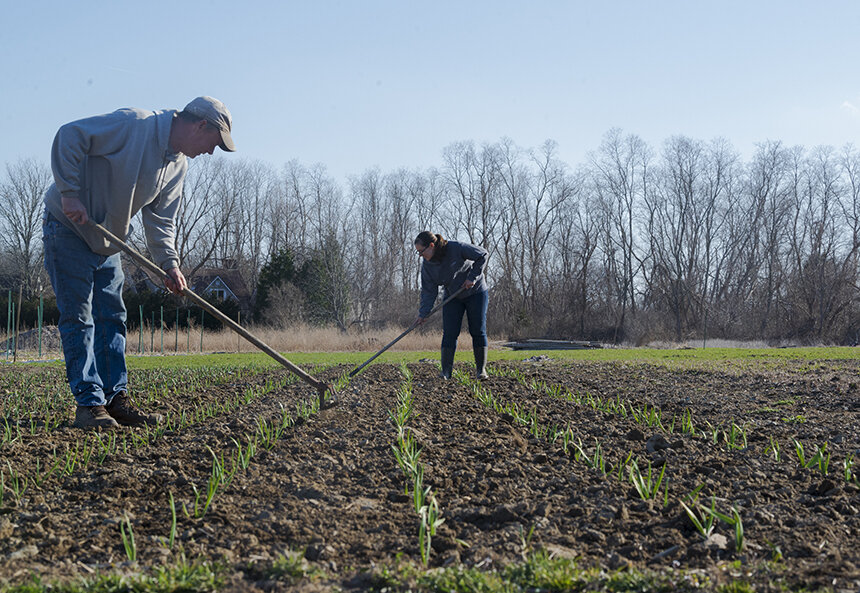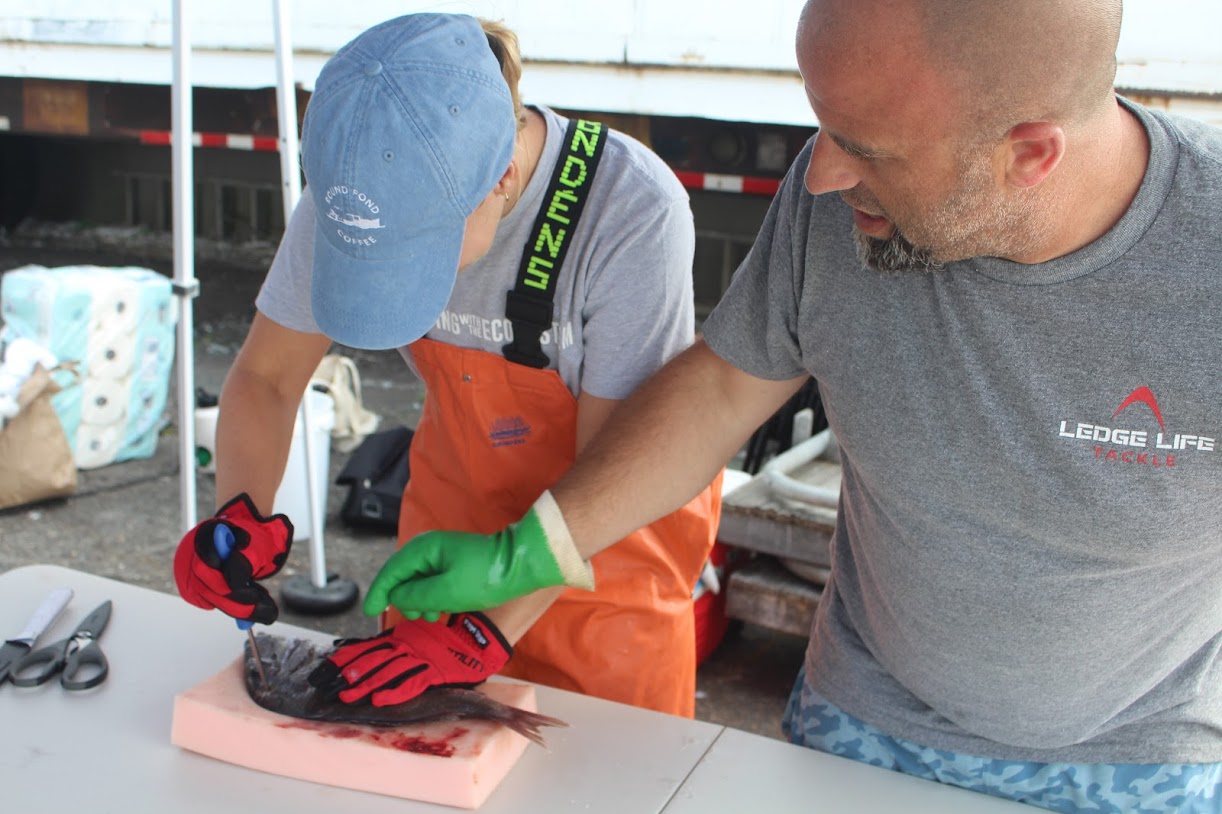Mushroom Co. Grows R.I.’s Taste for Fungus
May 19, 2014
WEST KINGSTON, R.I. — Standing on a platform at the train station, you might not know that close by, hidden in a warehouse across the tracks, is the state’s largest mushroom farm. The Rhode Island Mushroom Co. has one grow house in a building on the Kenyon Consumer Products property and a geodesic dome down the street, both devoted to the cultivation of local and exotic species of mushrooms.
The fruiting bodies of the mushrooms are harvested twice daily from climate-controlled rooms inside the warehouse, from bags of spores propagated from a mushroom farm in Pennsylvania. When they arrive in Rhode Island, these bags contain organic materials such as rye straw, millet, and wheat or rye berries inoculated with the mushroom spores.
The farmers themselves, Bob DiPietro and Mike Hallock, were amateur mycologists and mushroom hunters when they met in 2012 and saw an opportunity to turn their hobby into a profitable and beneficial business missing from the Ocean State.
They started in an 8-foot-by-8-foot closet in Middletown, with humidifiers for climate control to regulate temperature and growth. It was essentially a pilot project in a basement at Sweet Berry Farm. They started small to see if there was a local market for mushrooms. There is.
Their current grow house is 16 feet by 50 feet, and features a computer system, sensors and monitors — all accessible from their smart phones, because “even six hours makes a difference.” This controlled environment makes it possible for Hallock and DiPietro and their employees to carefully manage a yield of up to 1,000 pounds of mushrooms a week.
The ideal temperature for mushrooms is between 63 and 65 degrees Fahrenheit, with high humidity at 98 percent. The climate is regulated by a HVAC system that pumps fresh air in from the outside. Once the mushroom spores are captured, they are developed in a petri dish before being transferred to organic material such as a wheat berry, which provides a good food source for the mycelium.
The mushroom spores are moved from a cold room to a temperature-controlled grow room, to simulate the temperature changes of fall or spring and kick-start the mushrooms into production. Shitakes, a competing species for the other mushrooms, are grown in a separate grow house, as their spores “don’t play nice with others.”
All of the mushrooms spend less than a week of this process in Rhode Island, but because of their speedy rate, all visible growth happens within the last stages of the climate-controlled room. The spores the company grows are from Southeast Asia initially, but have been in the United States for generations.
Some oyster mushrooms, such as blues and goldens, sold by Rhode Island Mushroom Co. grow in the wild in here, as well as some black trumpets, chanterelles, morels and porcinis — typically in small quantities. Seasonal wild mushrooms are highly sought after and delicious, but can’t be cultivated. The company works with foragers to bring in wild mushrooms as the seasons change. Black trumpets and hen of the woods are two locally foraged mushrooms that are common and available in the fall.
Hallock and DiPietro also dabble in medicinal mushrooms, with reishi and chaga mushrooms (also known as clinker polypores), which are found in Rhode Island and, while inedible, can be ground down and used in natural medicine.
The business partners have 10 employees, and are planning on running mushrooms between 17 farmers markets a week this summer. Thanks to a grant made available by the Local Agriculture and Seafood Act, the Rhode Island Mushroom Co. hopes to expand by building another grow house.
Categories
Join the Discussion
View CommentsYour support keeps our reporters on the environmental beat.
Reader support is at the core of our nonprofit news model. Together, we can keep the environment in the headlines.
We use cookies to improve your experience and deliver personalized content. View Cookie Settings



